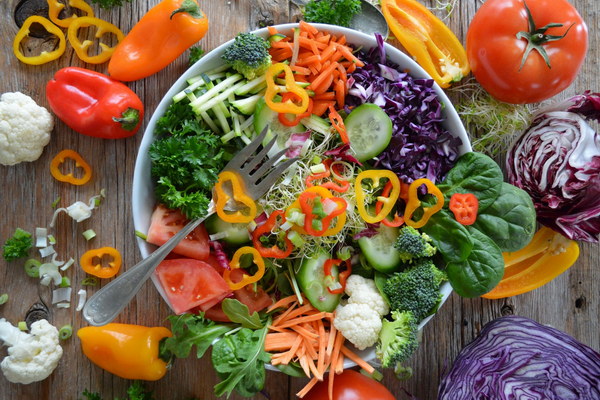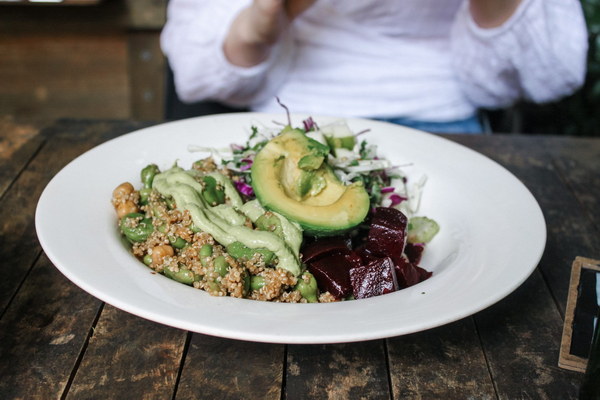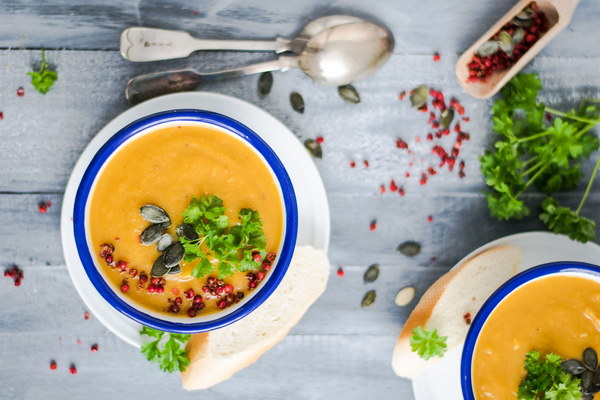Nourishing Your Headache Away A Guide to Dietary Remedies for Dizziness
Nourishing Your Headache Away: A Guide to Dietary Remedies for Dizziness
Dizziness can be a frustrating and sometimes debilitating symptom, often accompanied by a feeling of lightheadedness or unsteadiness. While medication can provide immediate relief, incorporating certain foods into your diet can help alleviate dizziness naturally and support overall well-being. Here's a comprehensive guide to dietary remedies that may help alleviate dizziness and improve your quality of life.
Hydration: The First Line of Defense
One of the most common causes of dizziness is dehydration. Ensuring you drink plenty of fluids throughout the day is crucial. Water is the best choice, but herbal teas, coconut water, and fresh fruit juices can also be beneficial. Aim to drink at least eight 8-ounce glasses of water daily.
Foods Rich in Potassium
Potassium is an essential mineral that plays a vital role in maintaining normal fluid balance and nerve function. A deficiency in potassium can lead to dizziness and weakness. Foods high in potassium include:
- Bananas
- Oranges
- Avocado
- Leafy greens (spinach, kale)

- Sweet potatoes
- Beans
Incorporating these foods into your diet can help restore your potassium levels and reduce dizziness.
Vitamin D and Calcium-Rich Foods
Low levels of vitamin D and calcium can contribute to dizziness, especially in older adults. Consuming foods rich in these nutrients can help:
- Vitamin D: Fortified milk, fatty fish (salmon, mackerel), eggs, and fortified cereals.
- Calcium: Dairy products (milk, cheese, yogurt), leafy greens, and calcium-fortified juices.
B vitamins and Folic Acid
B vitamins, particularly folic acid, are important for maintaining healthy nerve function. Deficiencies in these vitamins can lead to dizziness. Good sources of B vitamins include:
- Leafy greens
- Fortified cereals
- Lentils
- Nuts and seeds
- Lean meats
Iron-Rich Foods
Iron deficiency anemia is a common cause of dizziness. Increasing your iron intake can help:
- Red meat
- Poultry
- Fish
- Legumes
- Dark leafy greens
- Fortified cereals
Ginger
Ginger has been used for centuries to treat various ailments, including dizziness. Its anti-inflammatory properties can help alleviate nausea and improve digestion, which may contribute to dizziness. You can add fresh ginger to teas, smoothies, or soups, or take ginger supplements under the guidance of a healthcare professional.
Coconut Water
Coconut water is a natural electrolyte-rich drink that can help replenish fluids and electrolytes lost due to dehydration or excessive sweating. It's a great alternative to sports drinks and can be particularly beneficial if you're experiencing dizziness due to heat exhaustion or dehydration.
Herbal Remedies
Some herbal teas, such as ginger tea or peppermint tea, can help alleviate dizziness by settling the stomach and promoting relaxation. Always consult with a healthcare provider before starting any new herbal remedies, as some may interact with medications or have side effects.
Balanced Diet
Maintaining a balanced diet rich in whole foods, including fruits, vegetables, lean proteins, whole grains, and healthy fats, can help ensure you're getting all the necessary nutrients for good health and may reduce the risk of dizziness.
Conclusion
Dizziness can be caused by a variety of factors, but many cases can be helped by making strategic dietary changes. By staying hydrated, consuming foods rich in essential nutrients, and incorporating natural remedies, you can help alleviate dizziness and improve your overall well-being. Always remember to consult with a healthcare professional before making significant changes to your diet or treatment plan.









